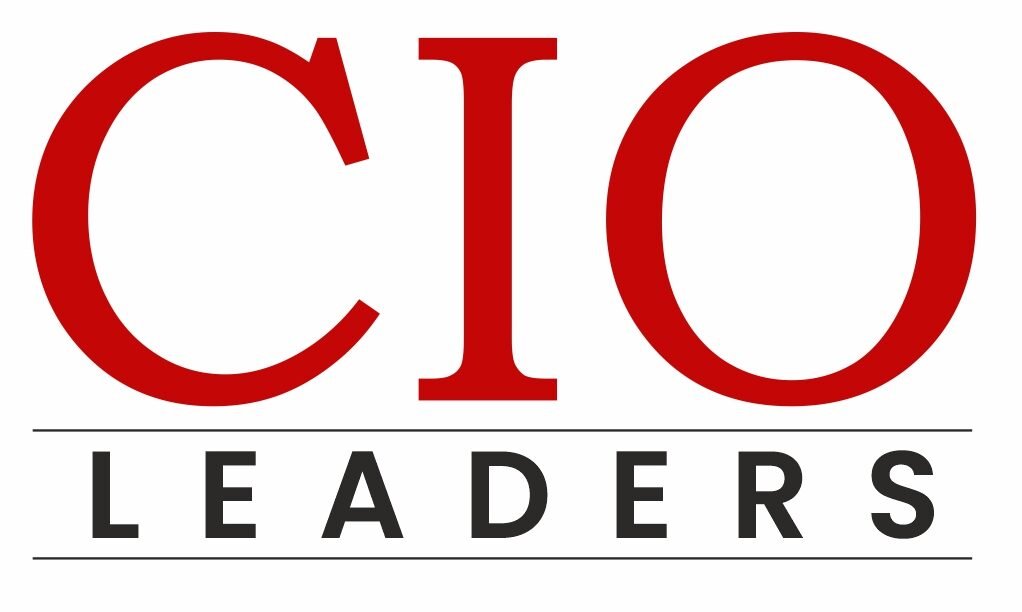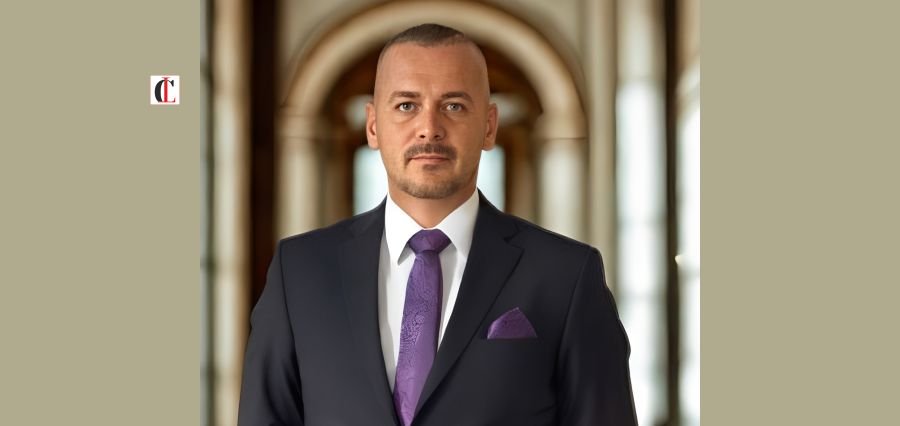New leaders are making their mark as Africa stands at the cusp of a major economic transformation. These trailblazers acknowledge the continent’s remarkable potential in addition to its well-known issues. One such African business leader who is guiding businesses to transition from transactional to transformational thinking is Richard Fraser. His transition from pancontinental investment trusteeship to multinational construction is instructive.
From an entrepreneur building private villas in Eritrea to the current chairman and chief executive officer of Fraser Legacy Holdings (PTY) LTD, Fraser’s tale is one of transition. The company has positioned itself at the forefront of the economic revival in Africa. He has a big idea for the continent, one in which African leaders want to shape their economic future rather than merely watch international markets.
Fraser is a leader of the generation that has united business with corporate social responsibility by diversifying his commercial endeavours in mining, agro-processing, telecommunications, and renewable energy in most African countries. He is one of the most powerful leaders to watch on the African continent thanks to his cross-generational leadership and change agent business strategy. He will probably steer the continent away from reliance on handouts and towards development powered by innovation.
Few people in Africa’s vast corporate leadership environment possess as much of the continent’s capacity for bold self-recreation as Fraser. He has positioned himself as a master architect of Africa’s economic change in addition to being a successful businessman by serving as both CEO and Chairman.
The Pillars of Purpose-Driven Leadership
Fraser’s leadership principles are founded on four immovable pillars upon which he has been able to drive the complex business landscape in Africa. “Integrity is not for negotiation,” he affirms unapologetically, when challenged to explain trust as “the real currency of leadership.” Resilience, responsibility, and vision are founded on this pillar as Fraser Legacy Holdings.
These are not Fraser lexicon jargon; these are actual experiences matured in the melting pot of Africa’s roller-coaster business environment. His emphasis on resilience is testimony to a leader who has endured the whirlwind of economic meltdown. He is never diverted by his vision for the long term- his objective of building a safe, sovereign Africa.
“Accountability is not to shareholders and stakeholders alone but to the societies we live in,” Fraser avers, creating a model of leadership far broader than the traditional corporate one. It is an inside-out leadership model more appreciative of business as a way of transforming society and not merely a way of making money.
Aligning Vision with Continental Transformation
Fraser’s vision for his company is an African agenda for the future. As Africa is expected to double in population in 2050, he imagines the additional pressures in education, infrastructure, energy, farming, and digital innovation. Rather than seeing them as threats, Fraser sees them as a call to radical change.
“We are not building businesses; we are building ecosystems that empower African people, fuel intra-African trade, and develop local talent,” the three-decade-old legacy mapping pioneer, who is now in his man-about-town prime, teaches Africa’s next generation of leaders. Fraser Legacy Holdings is more than just an investment company. It’s where Africa’s old legacy economic models of yesteryear meet its current tech-driven reality.
The company’s adoption of the African Union Agenda 2063 and other country visions for the future is reflective of Fraser’s commitment towards progress within a common community framework. Fraser Legacy Holdings’ business model as infrastructure investing, renewable energy products, and frontier market lending positions the company at the center of Africa’s economic sustainability and independence revolution.
The Leadership Paradigm for Modern Africa
When he talks of the type of qualities one requires in facilitating positive change within African business, his thesis betrays great wisdom in the leadership dynamic of the continent. He operates what he terms “adaptive intelligence.” To him, it is the ability to adapt strategy in real time without ever compromising high-order objectives.
“Unity in diversity, and that requires sensitivity and responsiveness to diverse cultures, histories, and politics,” adds Fraser. Customer leadership, strategic leadership, and sensitivity to cultures are his ingredients of great African leadership.
His resistance to taking on command-and-control models of leadership in the empowering and partnering paradigm is a manifestation of common sense in post-colonial African business culture. “Leadership in Africa is not command and control; it’s empowering, partnering, and lifting,” he explains, of a partnering model founded on trust and facilitation of innovation.
Legacy as Living Philosophy
The word “Legacy” of Fraser Legacy Holdings is near and dear to the heart of its founder on both personal and business levels. Legacy to Fraser is “leaving something behind that lasts longer than you”. It is a philosophy reflected in every step of the company.
At the personal level, Fraser refers to himself as a light with a call of “transferring values, wisdom, and opportunity to my children and to future generations of African leaders.” At the personal level, this personal call is answered by professional labor in the company’s commitment to the industries they create, communities they empower, policies they shape, and lives they transform.
“Loyalty is not an overnight phenomenon. It’s a reflective commitment to greatness and to legend,” Fraser reveals, continuing that the name of the company serves as a reminder of how they must come together as one in a generation, rather than on transactional terms.
Eritrea Moment: A Defining Experience
Fraser’s own development from corporate executive to continental intellectual starts with a breakthrough in Eritrea at the start of his career. Left in charge of an individual palace building construction project, he found something that permanently changed his conception of business purpose.
“The experience of going to the lovely country, wealth and hospitality of the people and cultures, and having the opportunity to share sharing doing business with local staff who have learning appetite and improved capacity to cope with new information,” recalls Fraser. This human touch of Eritrean and learning appetite “defined my sense of purpose.”
The experience was boiled down to a simple conclusion: “real generational impact is not about numbers on a balance sheet, but about creating new realities and possibilities for others.” This experience reinforced Fraser in the belief that all business activity needs to be based on both “a human face and a long-term horizon.”
Achievements That Define a Legacy
Fraser is proud of the success of Fraser Legacy Holdings in the blending of commercial development with social benefit. The company has been able to tap into partnership and capital from leveraging renewable energy, mining, commodities, telecommunications, and logistics but develop more through local partnership, ownership, and capacity building.
Perhaps the most fascinating accomplishment is frontier-mobile communications and rural telephony programs. “These are not infrastructure projects, these are life-changing interventions,” according to Fraser, in a sense very much the human aspect of technological efficacy.
Fraser’s move of transforming agriculture by setting up agro-processing centers for smallholder farmers in the entire region of Southern Africa is characteristic of how he approaches changing systems. These all add up to what Fraser states as a legacy statement: “Fraser Legacy Holdings was not just a company that built wealth; it was a company that built futures.”
Breaking the Trust Deficit
Fraser’s route to gaining influence globally and locally is that of the mega let-downs. He cites the “trust deficit” as being one of the main hurdles, the outcome of local distrust through past leadership failures and global underrating of African business competences.
His response is a reflection of his guiding principles. “I’ve had to lead by being open and consistent,” Fraser says, with the discipline of maintaining tight-and-firm compliance rules and governance arrangements that “speak for themselves.”
Establishing global partnership demanded reframing the African story. It demanded conversion of crisis into opportunity and dependency into innovation. Locally, investments in people-to-people diplomacy, workers’ vocational development, empowerment of youth, and gender empowerment created a sustenance base which recognizes Fraser Legacy Holdings as an actual partner in progress.
Beyond Business: The Fraser Legacy Foundation
The Fraser Legacy Holdings’ corporate social responsibility is maintained by the Fraser Legacy Foundation, which supports education, health care, youth entrepreneurship, and poverty relief programs. Fraser elaborates that their strategy is wiser than corporate philanthropy.
“We do not issue cheques. We are building programs with results,” he states, citing examples of education scholarship aside from mentorship, IT training and internship commitment. To medicine, coalition building with community health centers is proposed in the mission of better maternal health outcomes and mobilization of mobile health facilities into offline communities.
This is an extensive corporate social responsibility program with UN Sustainable Development Goal alignment on decent work, clean energy, and quality education. This is proof of Fraser’s intention to see the best world practices realized in African settings.
Advice for the Next Generation
Fraser’s counsel to Africa’s future leaders is the payoff of hard-earned experience: “Lead with purpose, not ego.” He is inviting visionaries, not ego-driven front-page seekers, to “build quietly, consistently, and courageously.”
His counsel is seasoned with contextuality, imaginative history, servitude-inspired creative boldness, and generous process thinking. “Legacy is not created by hype or shortcut, it’s created by conscious, day-by-day effort,” he recommends.
Stewardship runs through all his counsel: “Leadership is a stewardship. The future of the continent is not only in your hands, but also in your decisions.”
Transformational Vision
Fraser’s vision for Fraser Legacy Holdings is ambitious but achievable. His entrepreneurial vision is to see it become a pan-African investing behemoth with strategic presence in over 10 countries, and vertically integrated business in energy, telecommunications, mining, infrastructure, fintech, agri-industrial processing, and logistics.
What excites Fraser is “the potential to sell African solutions to African problems.” That potential of region-based capability and cleverness perhaps developing locally sustainable systems is the moment of distinction of his generation’s mentality.
Fraser’s vast investment in digital transformation is inward, into the company itself as corporate innovation, and outward, into transforming entire value chains in otherwise disorganized or undercapitalized sectors. Fraser’s vision is finally that Fraser Legacy Holdings will be a company not just famous for what they’ve accomplished, but how: “with integrity, impact, and intention.”
The African Renaissance Begins Now
Fraser possesses decades of experience and belief in commitment among the continent. “Africa’s time is not in the future; it’s now,” he states. He refers to the youth of the continent, the resources that have yet to be harnessed, and the thumping entrepreneurial pace as evidence that Africa is globalization’s new frontier.
In Fraser Legacy Holdings, being “architects of a new African narrative” is a reality that exists every day. Such an intergenerational narrative of value-creation, empowerment-driven, shareholder-driven speaks at a level higher than corporate purpose
In Fraser, Africa not only found yet another phenomenally successful businessman, but a change-agent master as well. He is the kind of man who realizes that lasting legacy is not what one does, but what one inspires others to do. His journey with Fraser Legacy Holdings remains an attestation to the power of purpose-driven leadership in Africa’s economic renaissance.
Read Also : Christopher Carter: From Silicon Sparks to Global Impact

